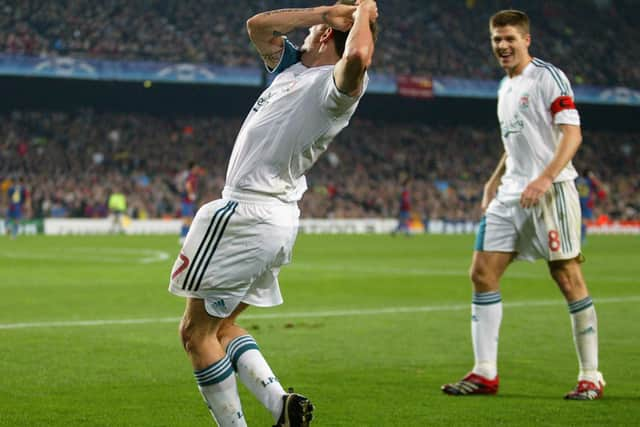European away goals rule abolished - here’s when Liverpool memorably benefitted in the past
and live on Freeview channel 276
Liverpool’s Champions League round-of-16 tie against Inter Milan marks the end of the away-goals era in European football.
For over 50 years, continental stalemates have been decided by the rule, introduced with the aim to encourage teams to take the game to their hosts and bring an end to away-day defensiveness.
Advertisement
Hide AdAdvertisement
Hide AdThe season before it’s introduction - 1964/1965 - saw Bill Shankly’s side progress into the semi-final of the European Cup thanks to victory in a coin toss, following two 0-0 draws and a 2-2 play-off draw against Cologne.
Since then, away goals have essentially counted for double in the case of a draw on aggregate - which has made for some dramatic results.
Liverpool have had 10 European games decided by the away goals rule, losing four and winning six.
Below are three of the most memorable wins decided by the rule.
1972/1973 - UEFA Cup semi-final vs Tottenham Hostpur
Aggregate score: 2-2
Advertisement
Hide AdAdvertisement
Hide AdLiverpool’s first-ever European trophy may not have arrived in 1973 had it not been for the away goals rule.
Bill Shankly’s side went to White Hart Lane 1-0 up thanks to a goal from left-back Alec Lindsay.
Martin Peiters scored twice for Spurs, but a Steve Heighway goal between the two sent Liverpool into the final thanks to away goals.
The Reds won a two-legged final against Borussia Monchengladbach 3-2 to get their first taste of European glory and kick off a run of five major European titles by the end of the decade.
1980/1981 - European Cup semi-final vs Bayern Munich
Aggregate score: 1-1


Advertisement
Hide AdAdvertisement
Hide AdLiverpool progressed into the final and ended up winning their third European Cup in five years thanks to an away-goals win against Bayern Munich in the semi-final.
The two sides drew 0-0 at Anfield in the first leg and Bayern Munich had already printed travel details for the final in Paris ahead of Liverpool’s visit.
Reds skipper Ray Kennedy opened the scoring as late as the 83rd minute, and despite an equaliser from Karl-Heinz Rummenigge, Liverpool were able to contain the pressure.
Bob Paisley’s side took on Real Mardid in the final in Paris, winning 1-0 thanks to a goal from Alan Kennedy.
2006/2007 - Champions League round-of-16 vs Barcelona
Aggregate score: 2-2


Advertisement
Hide AdAdvertisement
Hide AdThe Reds won the first-leg 2-1 at the Camp Nou, thanks to goals from Craig Bellamy and John Arne Riise - who had clashed in the build-up, with Bellamy reportedly attacking Riise with a golf club.
Deco opened the scoring for the holders early on but Rafa Benitez’ side fought back relentlessly.
Spanish full-back Alvaro Arbeloa had a debut to remember, stifling the seemingly irrepressible Lionel Messi.
Frank Rijkaard’s side won 1-0 at Anfield thanks to a 75th minute goal from Eidur Gudjohnson, but the Reds hung on to keep the aggregate score level and progress to the semi-final on away goals.
Liverpool progressed to the final in 2007 but were beaten 2-1 by AC Milan.
Comment Guidelines
National World encourages reader discussion on our stories. User feedback, insights and back-and-forth exchanges add a rich layer of context to reporting. Please review our Community Guidelines before commenting.